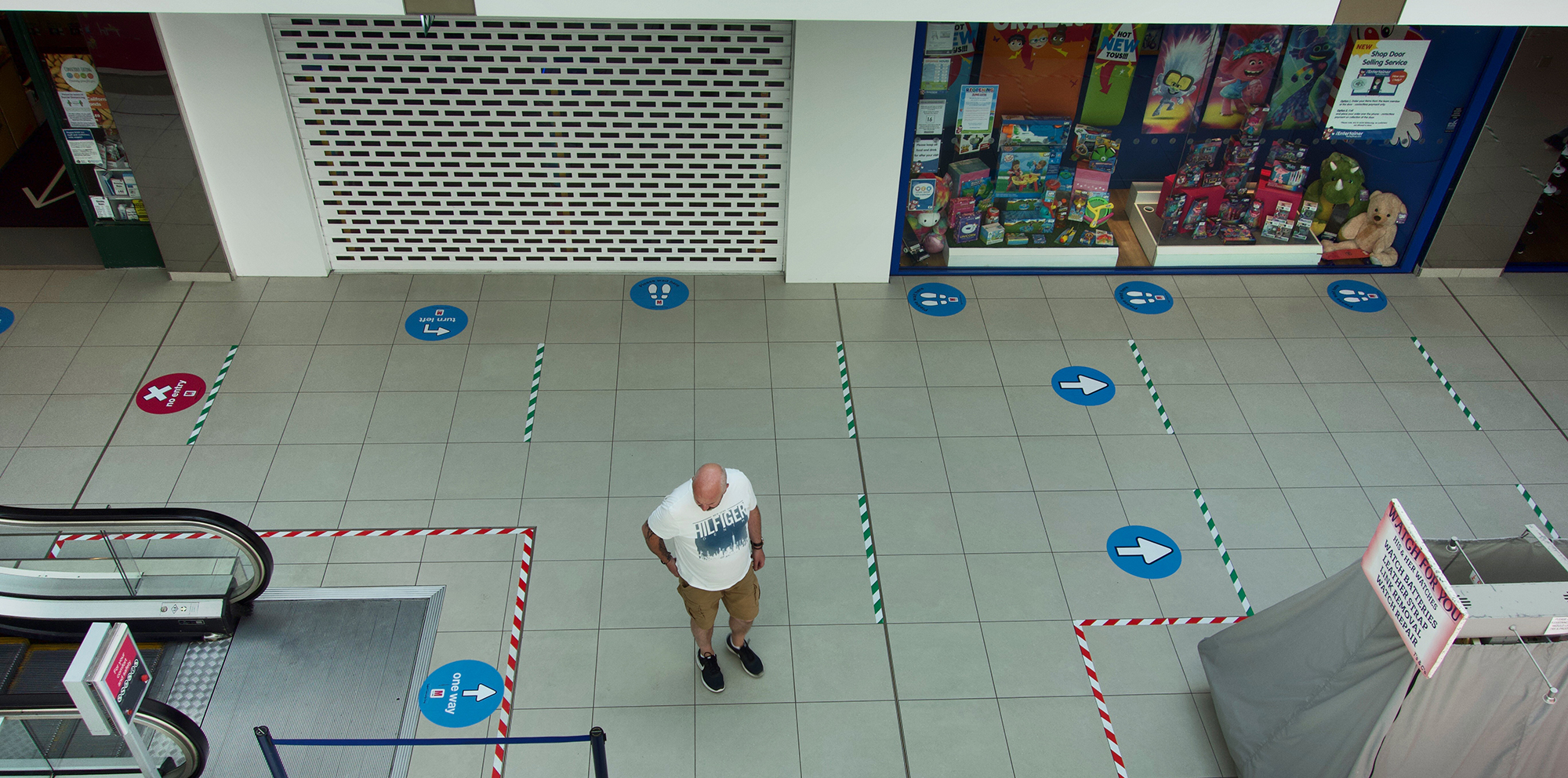
Overall retail foot traffic in the United States plunged 60 percent between March and May 16, 2020, but just a tenth of that decline stemmed from legal restrictions, UChicago researchers found. (Photography by John K Thorne [CC BY 2.0])
New findings on medical side effects, the economic impact of stay-at-home orders, and facial recognition technology.
Afraid to shop
The swift economic downturn of spring 2020 was driven more by consumer fear than government shutdowns, according to a June Becker Friedman Institute working paper coauthored by Chicago Booth’s Austan Goolsbee and Chad Syverson. The pair analyzed data from 2.25 million businesses around the country, comparing similar stores within the same commuting zones, across county and state lines, with different COVID-19 shutdown policies. (For example, Moline, Illinois, had a stay-at-home order and neighboring Davenport, Iowa, did not.) While overall retail foot traffic in the United States plunged 60 percent between March and May 16, just a tenth of that decline stemmed from legal restrictions, the researchers found. What does that mean for the prospect of a recovery? Don’t expect too much, the researchers caution. Repealing regulations may not be enough to get fearful consumers out of their houses.
The side effects of sexism
Women around the world receive higher dosages of medications than they need—and suffer adverse reactions ranging from headaches to seizures as a result. That’s the conclusion of a June 5 Biology of Sex Differences article coauthored by UChicago psychologist Brian Prendergast. Analyzing data from clinical trials for 86 drugs, including aspirin, morphine, and heparin, the researchers found that women metabolized the medications more slowly than men, resulting in greater exposure to the drugs and significantly higher rates of side effects. In many instances, these sex differences weren’t analyzed during the original trials, whose test subjects were overwhelmingly male. Prendergast says more research is needed to understand why men and women metabolize the same medications so differently. Until then he recommends doctors avoid a one-size-fits-all approach and drug companies include more women in clinical trials.
Face off
Facial recognition software has gradually extended its reach from seemingly innocuous Facebook photo tagging to more worrying use by repressive governments and law enforcement. Consumers have few options to protect themselves—and their own faces. Now, a team of UChicago computer scientists—led by PhD students Emily Wenger, SM’20, and Shawn Shan, SB’20, and including professors Ben Zhao and Heather Zheng—has developed a means of taking back control. The free software, called Fawkes, alters digital images in ways that go unnoticed by the human eye but can fool facial recognition technology. Fawkes tweaks a small percentage of pixels per image, just enough to disrupt the machine learning algorithms at the heart of facial recognition tools. Over time, the researchers say, with enough cloaked images of a person in circulation on the web, such programs will be unable to recognize even uncloaked images. The team presented Fawkes at the USENIX Security Symposium in August.
